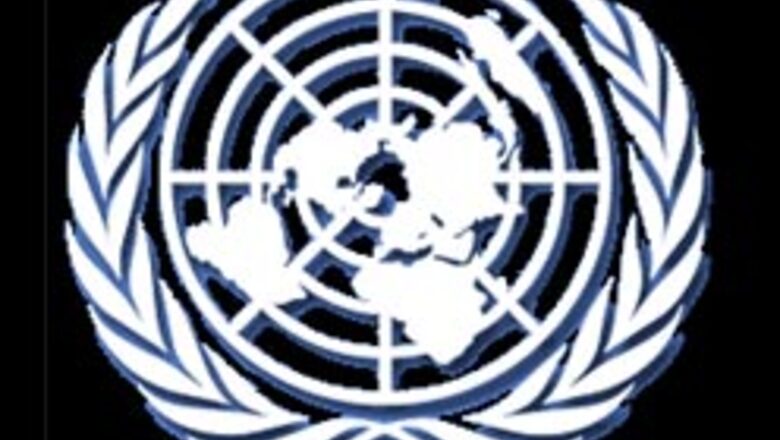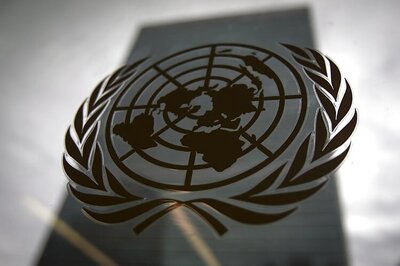
views
United Nations: To head off the worst of climate change, governments must pour tens of billions of dollars more than they are into clean-energy research and enforce sharp rollbacks in fossil-fuel emissions, an expert scientific panel reported to the United Nations (UN) on Tuesday.
The UN itself must better prepare to help tens of millions of "environmental refugees," the group said, and authorities everywhere should discourage new building on land less than one meter-39 inches above sea level.
The 166-page report, two years in the making, forecasts a turbulent 21st century of rising seas, spreading drought and disease, weather extremes, and damage to farming, forests, fisheries and other economic areas.
"The challenge of halting climate change is one to which civilization must rise," said the panel of 18 scientists from 11 nations, whose work was conducted at UN request and sponsored by the private United Nations Foundation and the Sigma Xi Scientific Research Society.
Their dozens of recommendations about what to do to mitigate and adapt to global warming come just three weeks after the Intergovernmental Panel on Climate Change (IPCC), an authoritative UN network of 2,000 scientists, made headlines with its latest assessment of climate science.
The IPCC expressed its greatest confidence yet that global warming is being caused largely by the accumulation of carbon dioxide and other heat-trapping gases in the atmosphere, mostly from man's burning of coal, oil and other fossil fuels.
If nothing's done, it said, global temperatures could rise as much as 11 degrees by 2100.
Temperatures rose an average 1.3 degrees over the past 100 years. The scientists who produced Tuesday's report said further rises this century should be limited to about 3.6 degrees, or the world risks crossing a climate "tipping point" that could produce "intolerable impacts on human well-being."
They said global carbon dioxide emissions should be leveled off by 2015-2020, and then cut back to less than one-third that level by 2100 — via a vast transformation of global energy systems, toward greater efficiency, away from fossil fuels and toward biofuels, solar and wind energy and other renewable sources of energy.
That changeover would be spurred by heavy "carbon taxes" or "cap-and-trade" systems, whereby industries' emissions are capped by governments, and more efficient companies can sell unused allowances to less efficient ones.
Such schemes are already in use in Europe under the Kyoto Protocol climate pact — have been proposed in Congress, but are opposed by the Bush administration, which rejects Kyoto.
The White House points to spending of almost $3 billion a year on energy-technology research as its major contribution to combatting climate change. But the U.N. experts panel said such research worldwide is badly underfunded, and requires a tripling or quadrupling of spending, to $45 billion or $60 billion a year.
Specialists say governments particularly should step up research into carbon capture and sequestration — technology to capture carbon dioxide in power-plant emissions and store it underground or underwater.
In fact, the experts panel urged governments to immediately ban all new coal-fired power plants except those designed for eventual retrofitting of sequestration technology.
Among its wide-ranging list of recommendations, Tuesday's report also called on UN agencies to study the need for an internationally accepted definition of "environmental refugee," since treaties recognize only political refugees as eligible for aid from the UN refugee agency.
The report expressed "special concern" that international capacity could be overwhelmed by coastal refugees fleeing seas rising as they expand from heat and melted land ice. Scientists estimate a sea-level rise of one meter, or 39 inches, by 2100 — conceivable in IPCC projections — would displace roughly 130 million people worldwide.
Biodiversity expert Peter H. Raven, Missouri Botanical Garden director and past president of Sigma Xi, and University of Michigan ecologist Rosina Bierbaum led the UN panel.




















Comments
0 comment